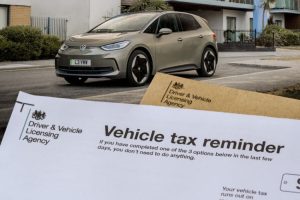Labour has scrapped the £950 million rapid charging fund promised by the previous Conservative government. The fund was meant to install more EV chargers near motorways nationwide.
Instead, Labour will allocate a smaller sum largely for on-street parking charge points.
The £950 million RCF was announced in 2020 by then-chancellor Rishi Sunak. The fund aimed to roll out new fast chargers and support grid upgrades so more EVs could charge simultaneously at rapid speeds.
Delays and Cancellation
The RCF was part of former Prime Minister Boris Johnson’s 10-point plan for a “green industrial revolution.” A pilot scheme was planned for late 2022.
It was delayed until spring 2023. Then pushed back again to summer 2024. Keir Starmer’s Labour administration recently killed it completely.
The previous government blamed delays on concerns about unfairly benefiting some motorway service stations. However, the Department for Transport said the RCF was never formally included in budget plans – leaving it underfunded.
In chancellor Rachel Reeves’ recent spring 2025 statement, she committed £400 million over five years to support EV charging infrastructure. This came after she allocated £200 million towards public charging in last year’s autumn budget.
Most of this spending will support on-street parking in areas lacking private-sector charging investment.
Industry Criticism
Despite dropping the Conservatives’ delayed RCF, Reeves faced criticism for not redirecting the £950 million towards getting motorists to switch to EVs.
Martin Lewis, CEO of on-street charge point operator char.gy, questioned the decision:
“The key question now is: couldn’t the full amount have been directed towards the EV effort – whether through the continued rollout of on-street charging or other consumer incentives – to give people greater confidence to make the switch to electric?”
Former Top Gear presenter and FairCharge founder echoed Lewis’ concerns. FairCharge campaigns for cheaper charging costs.
“Withholding unused RCF funds and not diverting them towards other EV charging initiatives isn’t a great look for government,” he said. “It opens them to obvious questions about their commitment to the EV transition.”
The founder has been vocal about the government’s reluctance to achieve VAT parity on public charging to match lower rates available for home charging.
EV drivers relying on public networks pay an estimated £85 million annually in extra tax.
Charging Costs and Growth
According to Zap-Map, public charging prices can reach 88p per kWh. Home charging can cost as little as 6.5p per kWh.
Since 2025 began, Zap-Map found over 80,000 EV chargers across the UK – a 29% increase over the previous year.
In March 2024, EV sales jumped 38% compared to 2024 – around 68,000 cars. March is crucial for the automotive industry as it introduces a new registration plate.
The government’s decision to scrap the Conservative’s £950 million fund has drawn mixed reactions as demand for EVs and public charging continues rising.





